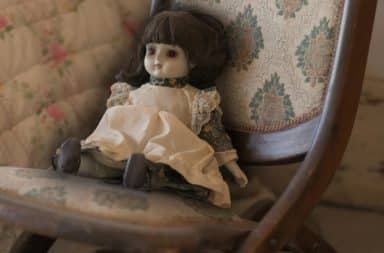Thor stood at the bow of the massive vessel. He was tired. It had been months since he constructed the ship, years since he first dreamed of setting out to discover new territory, and almost a decade since he and Fjorgyn Karsefni had spoken after one sordid night he deemed to be true destiny and she chalked up to too much mead.
In one hundred days at sea, they’d lost two ships and countless men. Thor wondered if he’d ever see his family again. He longed for the simple life of pillaging and plundering he’d left behind (though he could never remember which was which).
Their only amusement was a chessboard brought on board by Thorfinn Sturluson. But the crew lost interest quickly when they realized Thorfinn cheated terribly. He would swear, “The horsie can move anywhere! If you don’t believe me, ask the Eastern Slavs.” But if there were any Eastern Slavs on board, they weren’t talking.
Leif Thorrson cried, “Land!” but no one paid him any heed mainly because he had a bad habit of yelling “Land!” every hour.
The men were destitute: want of spirit, want of affection, want of life. Their meager diet consisted of porridge, boiled fish, and crème de menthe brulee with wild berries and caramelized sugar garnished with a mint sprig. They could take no more.
As they rowed, the crew glared at Thor with contempt, a far cry from the trust and admiration they felt towards him when the journey began. But Thor was filled with resentment as well—mostly towards his longtime friend Thorvald Herjolfsson, who, in a moment of frustration, pushed Thor’s Runic monument to his father overboard, saying it disrupted the energy of the boat. Thor retaliated by throwing Thorvald’s book on Feng Shui overboard. Petty as it was, neither man was going to present the other with an olive branch of peace. For Thorvald had thrown that off two days earlier.
There was not much time left as the supply of grain was running low. Thor could no longer stand to look at the endless horizon anymore. He lowered his head and prayed silently to the Gods.
In a moment one could only call divine intervention, a speck appeared far in the distance on said horizon. Leif Thorrson cried, “Land!” but no one paid him any heed mainly because he had a bad habit of yelling “Land!” every hour, a habit that earned him the nickname, “The Timekeeper.” This time, however, it was land.
All at once, the crew exploded in elation. But lest they suffer from premature celebration, an ailment many young Vikings experience amidst the carnal joy of the autumnal orgies, each man returned his focus to reaching the shore. With the strength and power of a hundred ships, they stroked and stroked as the oak planks glided through the water. The tide lent a hand and propelled the boat onto the beach lurching the crew onto the sand.
Standing slowly on dry land for the first time in months, they looked around, gazing in stunned silence at the natural beauty that lay in front of them: forests of willow and birch, magnificent fjords, rolling hills.
After what seemed an eternity, Thorvald approached Thor and handed him the flag. Thor accepted it as the two men shared a moment of unspoken reconciliation.
With a tear in his eye, Thor jabbed the stick into the sand. The crew cheered. Then, with his voice cracking both from pride and exhaustion, Thor spoke.
“My friends,” he began, “it has been a long and arduous journey, but our labors have been rewarded. We started out mere boys, but ended up men who have made history. After a myriad of sunrises and sunsets, storms, and the loss of our brothers at sea, we accomplished the impossible. Now we must get word to our families and neighbors that we’re alive and well and about to settle in a new world.”
The brotherhood of strapping boatmen looked to their leader, ready to act upon his instruction. Thor, in turn, looked to them, then gazed behind him upon the bounty that was a new territory, pristine and lonely, and then back to them, who still hinged on his every breath as he expelled one heavy sigh. “Everyone back on the boat.”


